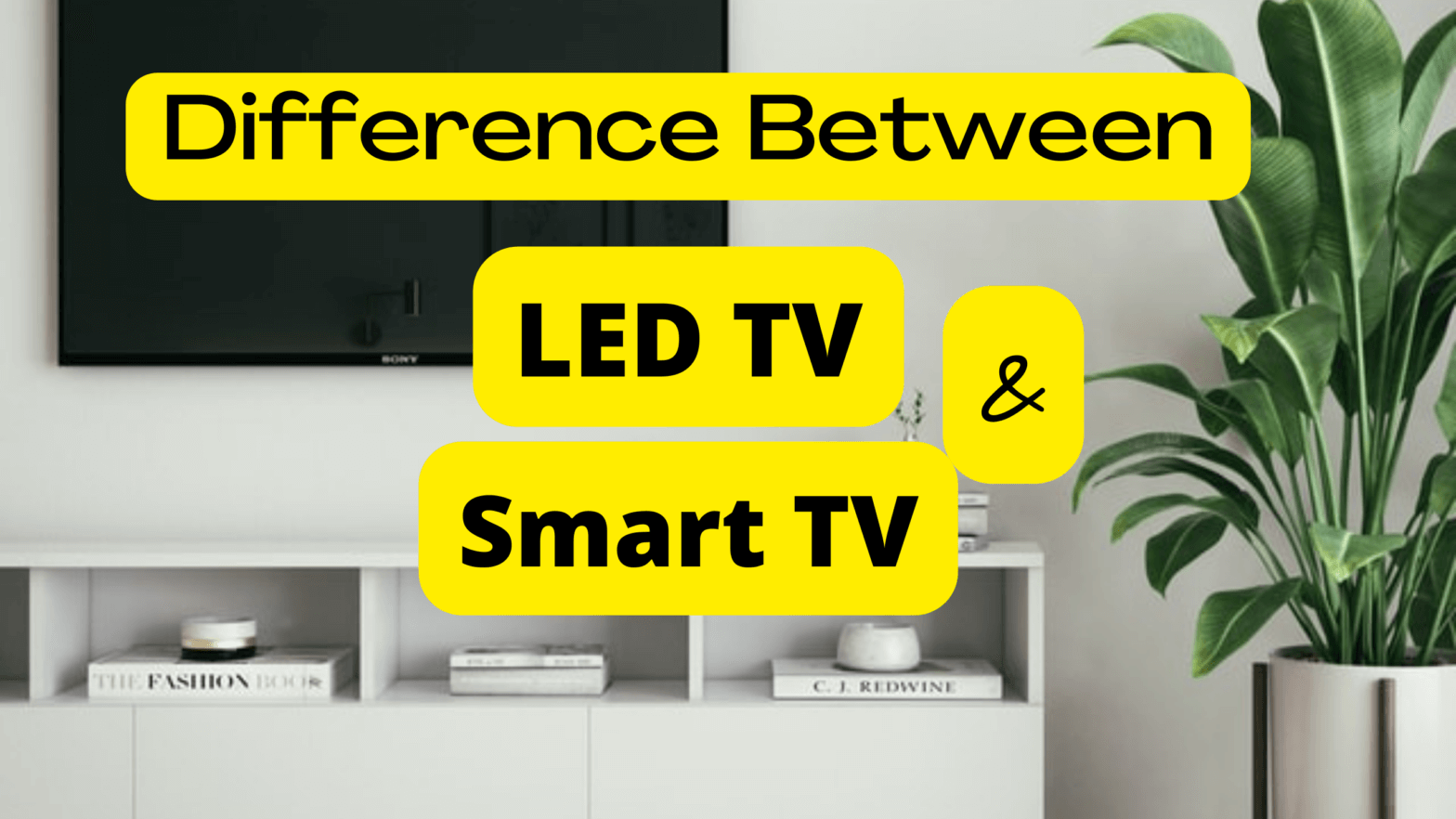Are you planning to buy a new television? The endless options can make your search rather difficult and time-consuming. One of the aspects that you may want to understand is the difference between LED TV and Smart TV.
Difference Between LED TV And Smart TV
LED TV is one whose backlight technology is LED (light-emitting diode). On the other hand, a Smart TV is an LED TV with a built-in operating system (OS) and can connect to the internet.
The operating system allows the installation of additional applications and services, such as Internet browsers, media players, games, or web-based TV guides.
We’ll take you, step-by-step, through many important terms that you must know to make a well-informed purchase.😊👍🛒
Here we go! 🚀
What is LED TV and Smart TV?
- Difference Between LED TV And Smart TV
- What is LED TV and Smart TV?
- Difference between Smart TV and ordinary LED TV
- What is Smart LED TV?
- Difference between LED TV and LCD TV
- LED TV Features and Benefits
- Which TV is better – Smart TV or LED?
- LED TV vs Smart TV vs Android TV
- Frequently Asked Questions (FAQs)
- Top 10 Smart & Android TVs
Let’s begin by understanding the concepts of LED TV and Smart TV individually.
What is LED TV?
LED stands for light emitting diode.
It’s a technology that’s used in the backlighting of LCD screens. (You’ll find more details about LCD and LED in the sections below).
So, LED TV is a type of flat-panel display technology that uses light-emitting diodes (LEDs) as backlight units to produce images.
The diode is a semiconductor light source that can be used to illuminate an entire screen or just parts of it.


